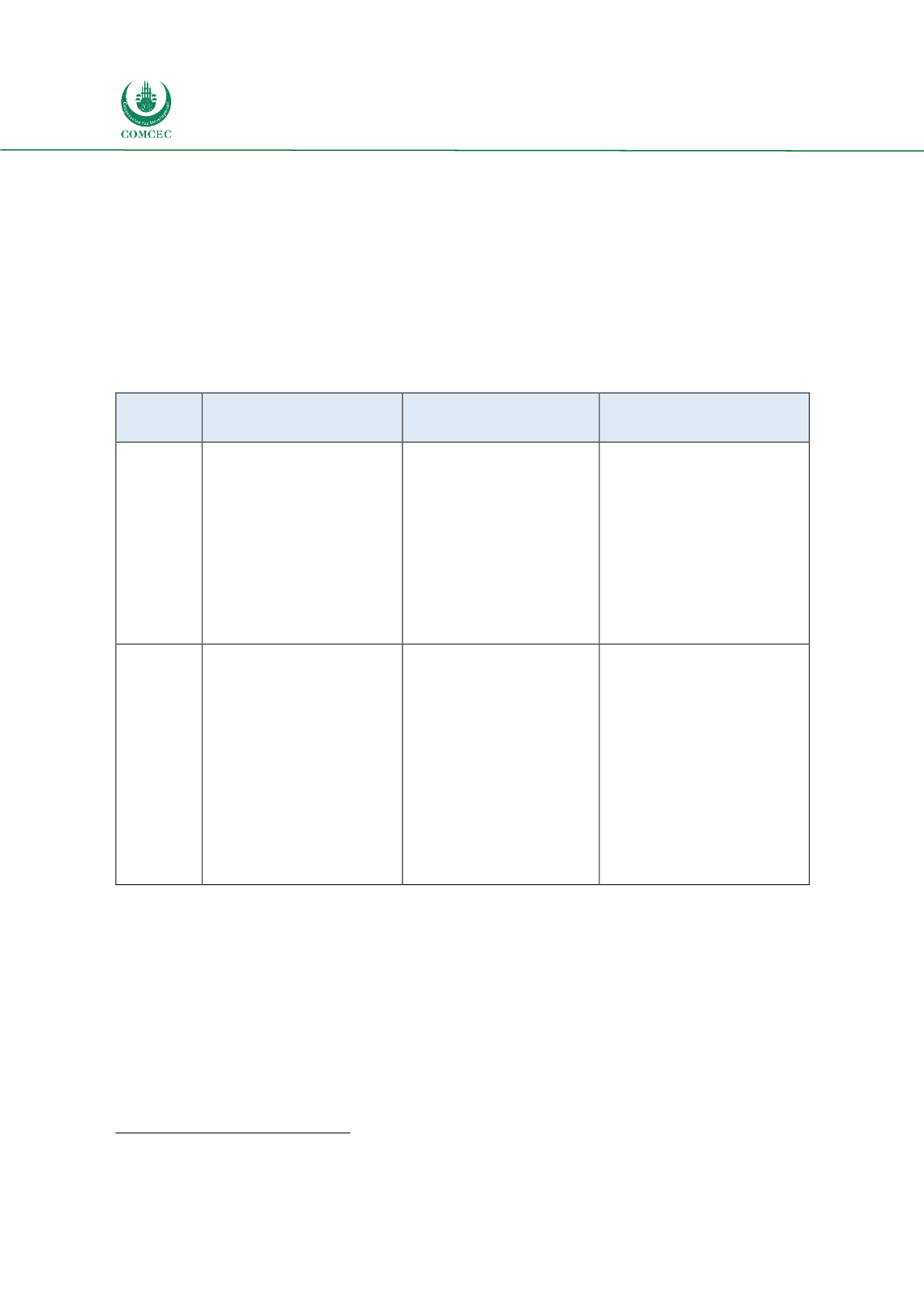

Sustainable Destination Management
Strategies in the OIC Member Countries
110
Effective stakeholder coordination can be facilitated through the existence of formal forums or
organizations which combines membership from various public and private stakeholders. The
success of adoption of sustainability practices is on the consultation and engagement of the various
stakeholders in planning and implementation and on the provision of support for implementation
of sustainable tourismstrategies. The leading non-OIC country examples showa high level of formal
engagement with industry stakeholders, with well-established formal organizations that allows for
collaboration and coordination between the different stakeholders. Engagement and support
initiatives also illustrate the commitment of the leading non-OIC countries to promoting sustainable
tourism and encouraging the various tourism stakeholders to adopt sustainable tourism practices.
Table 11: Stakeholder Engagement - Select Leading Non-OIC Countries
380
Formal organizations
Consultation Initiatives
Support Initiatives
Denmark
Danish National Tourism
Forum has a chairman
from the Ministry of
Industry, Business and
Financial Affairs with
members
from
Visit
Denmark, Danish regions,
the tourism industry, and
tourism researchers
Danish National Tourism
Forum receives
continuous feedback and
advice from the Danish
Tourism Advisory Board,
which has members from
a wide range of
stakeholders with
different tourism interests
Within the framework of its
Smart Tourism Strategy,
Visit Denmark provided
support to digitalize Danish
tourism’s value-chains to
increase the coordination
and co-operation within the
Danish tourism industry
Italy
The Standing Committee
for the Promotion of
Tourism
in
Italy
is
composed of private and
public entities
During 2016, the national
tourism industry and all its
public
and
private
stakeholders collaborated
through
a series
of
conferences and meetings
to develop a new National
Strategic Plan for Tourism
for the period 2017-2022
In 2014, a tax credit system
was announced by the
Ministry of Cultural Heritage
to support the restoration
and upgrading of tourism
structures to create more
efficient and sustainable
buildings as well as a 30%
tax
credit
to
support
digitalization of tourism
activities
Source: DinarStandard Analysis
OIC countries, based on the examples shown in the following table, may have some forms of formal
structure that aligns the broader tourism industry with sustainability efforts, but falls short on the
process of ongoing engagement and consultation – which in the strongest example presented,
notably Denmark, is systematic and well supported through formal organizational structures.
380
All information in this table based on case study feedback unless otherwise mentioned.
















